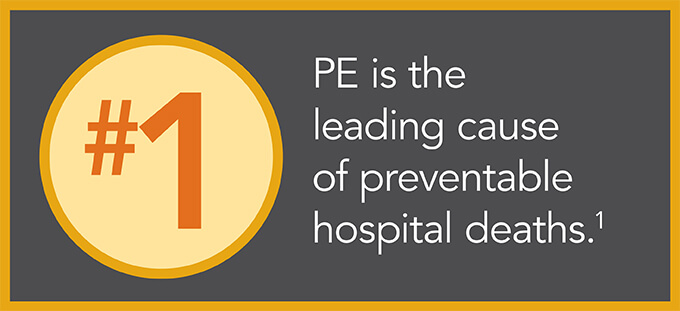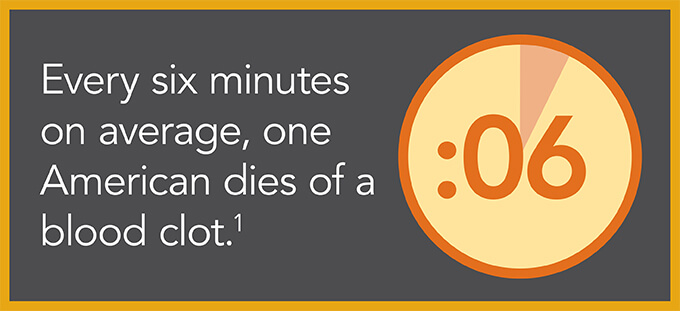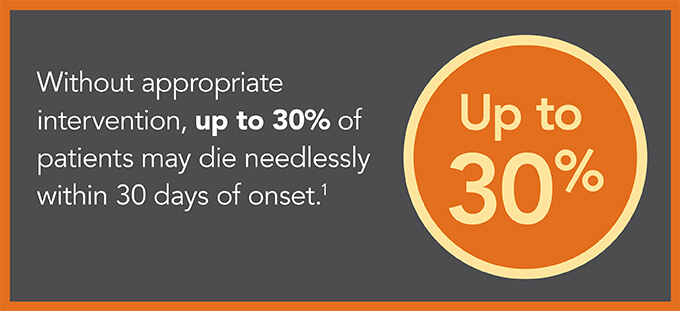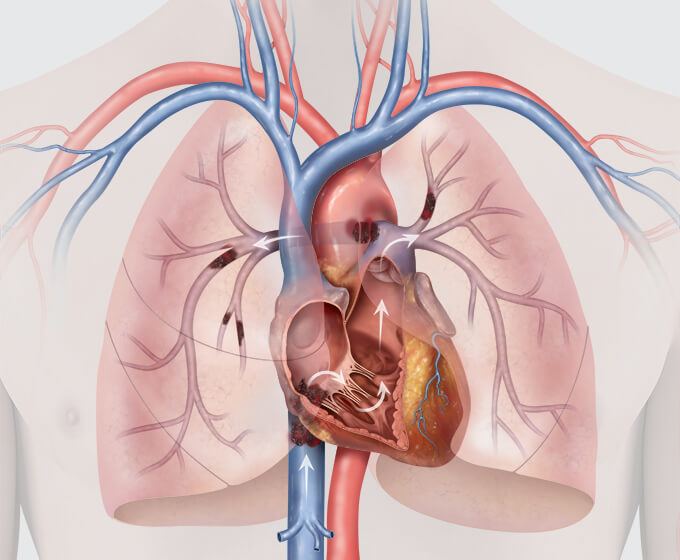







PE is a sudden blockage of one or more of your blood vessels to your lungs. PE is caused by blood clots that typically form in the legs. They can break loose and travel through the bloodstream to your lungs, restricting or blocking the flow of blood and oxygen.
 Clots that break free to cause PE most often develop in the leg because of deep vein thrombosis (DVT). A DVT is caused when your blood is not moving through your body or your blood is thickened and not clotting normally.
Clots that break free to cause PE most often develop in the leg because of deep vein thrombosis (DVT). A DVT is caused when your blood is not moving through your body or your blood is thickened and not clotting normally.
Although anyone can develop a PE, certain factors can increase the risk. These factors include long periods of immobility or inactivity (for instance, bed rest resulting from a medical condition, or extended period of travel), cancer, smoking, obesity, pregnancy, estrogen-based medication (including birth control pills or hormone replacement therapy), and certain surgeries. Recognizing and treating PE quickly can reduce the risk of death.
Links for additional detail on PE:
Remember, every patient is different, and your doctor knows you best. After reading the information on this site, make an appointment to talk to your doctor to help you make the right decision about any treatments or procedures.